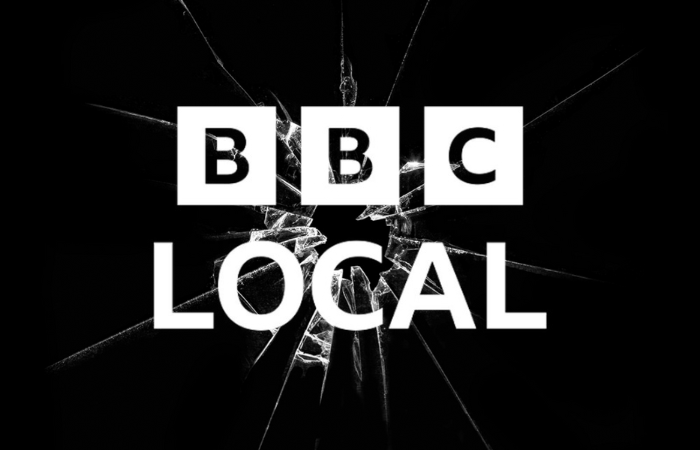
LEVELLING DOWN?
At a time when the government is trying to “level up Britain” and tackle regional inequality, the recent cuts to BBC Local Radio feels like anything but, and surely undermines this manifesto promise? If pulling the plug on the HS2 high speed rail link is anything to go by – which was touted as the biggest single act of ‘levelling up’ in history – it’s impossible not to think the UK radio industry is in fact levelling down.
The pandemic showed us that at a time of crisis, BBC Local Radio was a salvation for millions of listeners. Some of those who rely on local radio, particularly the elderly and more vulnerable, have no access to smart phones or online devices and the concern is that they will lose out on a vital service and become disconnected from what is happening where they live.
Yet despite widespread opposition, the cuts – which began in autumn 2023 – saw local programming at the corporations’ 39 local stations syndicated into 10 shows. These shows are broadcast to a wider regional area from 2pm each weekday and late-night shows replaced with a national show before switching to BBC Radio 5 Live output in the early hours. According to the Financial Times, the cuts resulted in a loss of 48 jobs and saves the corporation £7.5m – prompting BBC local journalists to strike last year.
The erosion of BBC local radio could be behind the massive loss of 793,000 listeners over the last 6 months of 2023, and this downward trend could well continue. Even so, there are still 7 million listeners tuning in each week according to the latest set of RAJAR figures.
Presenters who had been loyal to the BBC for decades were made to reapply for their jobs and the emotional toll was devastating. A much-loved presenter suffered a heart problem on air the day after being made redundant; another “[sic] was talked down by a colleague”; one presenter quit due to the unbearable wait of finding out his final leaving date. And the floodgates opened as emotional, tearful and critical final sign-offs ensued. Since then, stations have been plagued with technical difficulties, complaints about irrelevant content and a loss of local voices in a sign that the very heart and soul of local public broadcasting has been ripped out.
And it’s not just presenters who have been impacted. Journalists and producers have also been affected by the cuts – in a time where fake news is rife, factual journalism is now more crucial than ever.
———————————–
THE IMPORTANCE OF THE BBC BROADCAST ECOSYSTEM
There are real concerns about an industry that has always nurtured the next generation of talent. Victoria Derbyshire started as a reporter at BBC Coventry & Warwickshire; former Woman’s Hour presenter Jane Garvey cut her teeth at BBC Hereford and Worcester; broadcasting legend Ken Bruce honed his skills at BBC Radio Scotland; Jeremy Vine began reading the news at BBC Northern Ireland; Simon Mayo spent 5 years at BBC Radio Nottingham and BBC Radio Leeds enjoyed the corporations’ second longest standing female presenter Liz Kershaw. The list goes on.
And while there’s no do doubt that those presenters who remain on their shows, or have gone on to present syndicated shows in the overhaul, are incredibly talented – it’s sad to think there might be slim pickings for the next generation and our airwaves filled with influencers and reality TV personalities simply because they have huge social media followings.
The outpouring in support of BBC Local Radio has been enormous with prominent figures warning against cuts to shows aimed at BAME audiences and the impact to the music industry with the loss of 12 BBC Introducing shows that helped launch the careers of Ed Sheeran and Little Simz to name a few.
Let’s be honest, the BBC has taken a leaf straight out of the commercial radio playbook and nationalising regional stations has been going on for years. After acquiring Communicorp in 2014 and taking control of the likes of Smooth Radio, Capital and Real XS, Global Radio announced in 2019 that it was to replace the 40-plus local breakfast shows across its Capital, Smooth and Heart networks with just three nationwide programmes.
And it’s the same story over at Bauer – rebranding nearly 50 regional stations under the Greatest Hits Radio moniker in 2020 – scrapping unique local stations for syndicated programmes across its network with shows produced in London.
A cost-saving levelling down exercise en-masse.
———————————–
But there is hope…
THE RISE OF SMALLER COMMERCIAL LOCAL AND COMMUNITY STATIONS
Since 2002, 15 community small and micro-local stations were launched, rising to over 300 licenced stations that we see today. And now with ex-BBC presenters, like Jason Rosam, Caroline Martin and Jason Hardy finding new homes at smaller stations, could these broadcasters rise to the challenge and fill the gap left by the Beeb? With hyper regional content, local radio provides a voice for those not served by other media – affording volunteers the opportunity to learn skills in an industry that’s often difficult to penetrate. It’s highly likely we’ll see emerging talent as well as broadcast veterans return to the airwaves – bringing listeners with them in what has been coined the “The Ken Effect”.
———————————–
WHAT IMPACT WILL THIS HAVE ON BROADCAST PR?
Beyond the heartbreak and turmoil felt by many at local BBC stations and their listeners, what does this mean for clients looking to do a radio day? With fewer programmes on which to place content and a more stringent brief to fulfil, the BBCs have differing remits depending on each syndicated show – so it’s never been more important to make sure your story caters’ for these changes.
We too have had to adapt our approach to accommodate the revised format now and going into the future. Want to know more? Give us a bell!
Comments are closed.